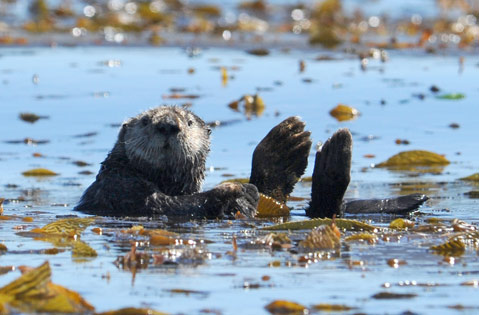
The saga between sea otters and commercial fishermen recorded more legal wrangling last week in federal court. At issue was the U.S. Fish & Wildlife Service’s 2012 decision to officially evaporate its “no-otter zone” — from Point Conception to Mexico — where biologists were tasked with capturing otters and shipping them to Central California waters. While an otter-free Southern California proved impossible to maintain, the law that created it did afford commercial fishermen — who compete with otters for valuable shellfish — a layer of immunity from federal laws protecting marine mammals.
Maintaining that Fish & Wildlife had no authority to ditch the congressionally mandated program, fishermen groups — including Commercial Fishermen of Santa Barbara (CFSB) — sued to keep safeguards in place. On September 18, Judge John Walter denied that challenge. In a statement, CFSB expressed “disappointment” with Walter’s decision, adding, “it’s unfortunate that local fishermen run the risk of federal prosecution when they go fishing.” CFSB’s Michael Harrington explained that urchin divers, for example, could be viewed as harming sea otters by taking away their food. “All you need is one group to say that fishermen are harassing sea otters,” he said. Working on behalf of Fish & Wildlife, Santa Barbara’s Environmental Defense Center lauded the decision as a victory “that has restored protections for sea otters in Southern California,” according to a press release.
Decimated by fur traders, the southern sea otter was thought extinct until a small group was spotted off Big Sur in 1938. As their numbers and range expanded, otters garnered the protection of the Marine Mammal Protection Act and a “threatened” listing via the Endangered Species Act. In 1987, as part of a program to reestablish otters at San Nicolas Island, Congress mandated that strays in Southern California get sent back north. But in the ’90s, Fish & Wildlife dubbed the effort a failure, citing the futility and expense of trapping and relocating these elusive wild animals that had migrated back into their historic range. Starting in 2009, environmental groups lawyered up to finalize a shutdown of the no-otter zone. Commercial fishermen responded accordingly, and this most recent courtroom clash isn’t the end of it. Harrington said the fishermen will likely appeal.



